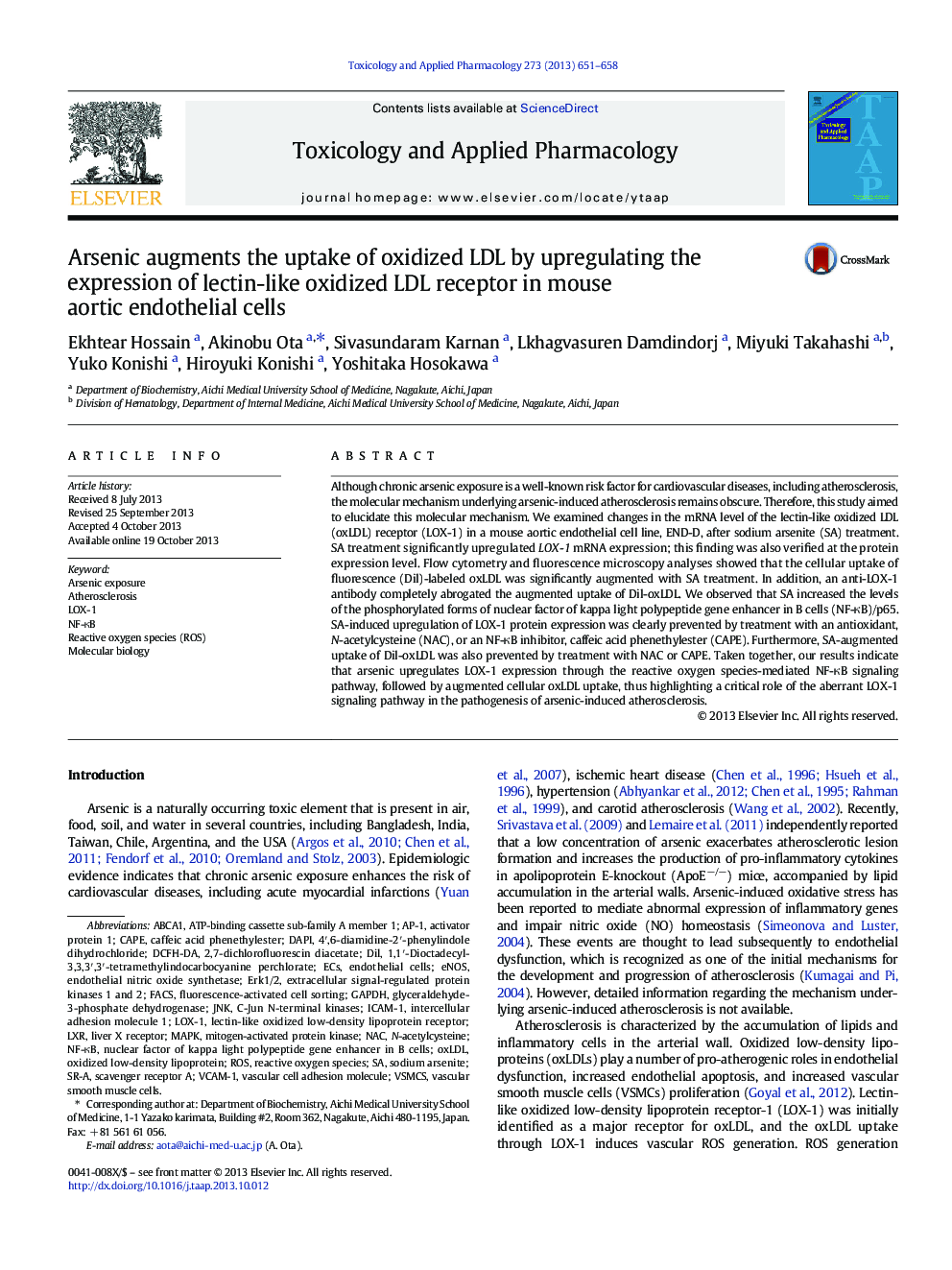| Article ID | Journal | Published Year | Pages | File Type |
|---|---|---|---|---|
| 5846496 | Toxicology and Applied Pharmacology | 2013 | 8 Pages |
â¢Sodium arsenite (SA) increases LOX-1 expression in mouse aortic endothelial cells.â¢SA enhances cellular uptake of oxidized LDL in dose-dependent manner.â¢SA-induced ROS generation enhances phosphorylation of NF-κB.â¢SA upregulates LOX-1 expression through ROS-activated NF-κB signaling pathway.
Although chronic arsenic exposure is a well-known risk factor for cardiovascular diseases, including atherosclerosis, the molecular mechanism underlying arsenic-induced atherosclerosis remains obscure. Therefore, this study aimed to elucidate this molecular mechanism. We examined changes in the mRNA level of the lectin-like oxidized LDL (oxLDL) receptor (LOX-1) in a mouse aortic endothelial cell line, END-D, after sodium arsenite (SA) treatment. SA treatment significantly upregulated LOX-1 mRNA expression; this finding was also verified at the protein expression level. Flow cytometry and fluorescence microscopy analyses showed that the cellular uptake of fluorescence (Dil)-labeled oxLDL was significantly augmented with SA treatment. In addition, an anti-LOX-1 antibody completely abrogated the augmented uptake of Dil-oxLDL. We observed that SA increased the levels of the phosphorylated forms of nuclear factor of kappa light polypeptide gene enhancer in B cells (NF-κB)/p65. SA-induced upregulation of LOX-1 protein expression was clearly prevented by treatment with an antioxidant, N-acetylcysteine (NAC), or an NF-κB inhibitor, caffeic acid phenethylester (CAPE). Furthermore, SA-augmented uptake of Dil-oxLDL was also prevented by treatment with NAC or CAPE. Taken together, our results indicate that arsenic upregulates LOX-1 expression through the reactive oxygen species-mediated NF-κB signaling pathway, followed by augmented cellular oxLDL uptake, thus highlighting a critical role of the aberrant LOX-1 signaling pathway in the pathogenesis of arsenic-induced atherosclerosis.
